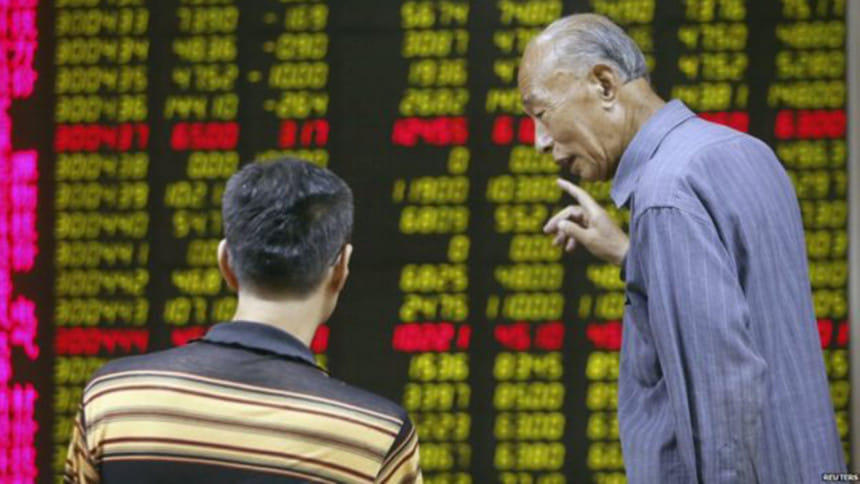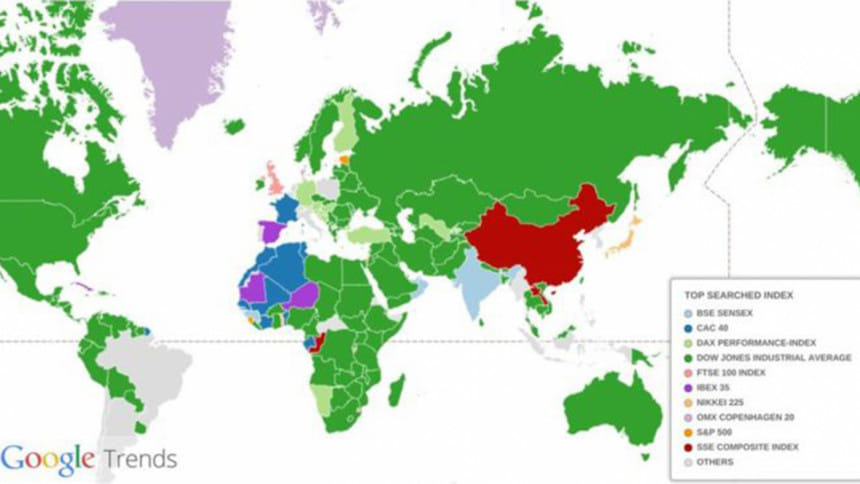Black Monday and Tumble Tuesday: How China reacted

Chinese stocks continue to tumble, a day after "Black Monday" sent markets crashing across the globe.
"When China sneezes, the rest of the world catches a cold," was how one Chinese netizen described the aftermath of the fall.
Thousands of other users also reacted across the Chinese internet.
"Looks like Black Monday has become Tumble Tuesday," remarked one user on China's microblogging platform Weibo.
"This is the Great Fall of China. First the Tianjin tragedy and now stock market sadness. Let's keep our heads up," said another.
Weibo users were also expressing their worries and their questions about "long-term volatility" of Chinese stocks.
"I don't understand why our stock market has become so volatile," said another. "Can someone tell us clear reasons behind this? It's frustrating and scary for one holding stocks right now."
News about the "tidal wave impact" of China's stock market also spread to Twitter, where users began tweeting using the #BlackMonday hashtag.
Concerned or curious Google users also searched for stock market news, and it soon became a top trend.
Others began to wonder if things were going to get worse.
"After Black Monday now comes Dark Tuesday?" wrote Hong Kong Twitter user and journalist George Chen. "The Shanghai benchmark index sunk 6.4% at opening as the central bank allowed Ren Men Bi [China's yuan currency] to devalue again."
A curious sculpture of a bull riding a bear in the southeastern port city of Xiamen has also struck a chord with Chinese netizens.
Bulls are considered the symbols of confident economy, the opposite totem - when the economy is retreating - being a bear.
Some have described the 3.4m-high (11ft), three-tonne statue, sitting outside an art museum, as an unofficial "symbol of hope".
"Let's hope this bull can bear the stock market pressure," commented one Weibo user.
Another user said: "After all the turmoil, looking at it gives me strength."
Visitors have also been flocking to Xiamen to catch a glimpse of the copper statue, with some even making offerings by placing joss sticks and food around its feet.
The owner of the statue also told Chinese state broadcaster CCTV News that it was indeed "related to the current stock market".


 For all latest news, follow The Daily Star's Google News channel.
For all latest news, follow The Daily Star's Google News channel. 



Comments